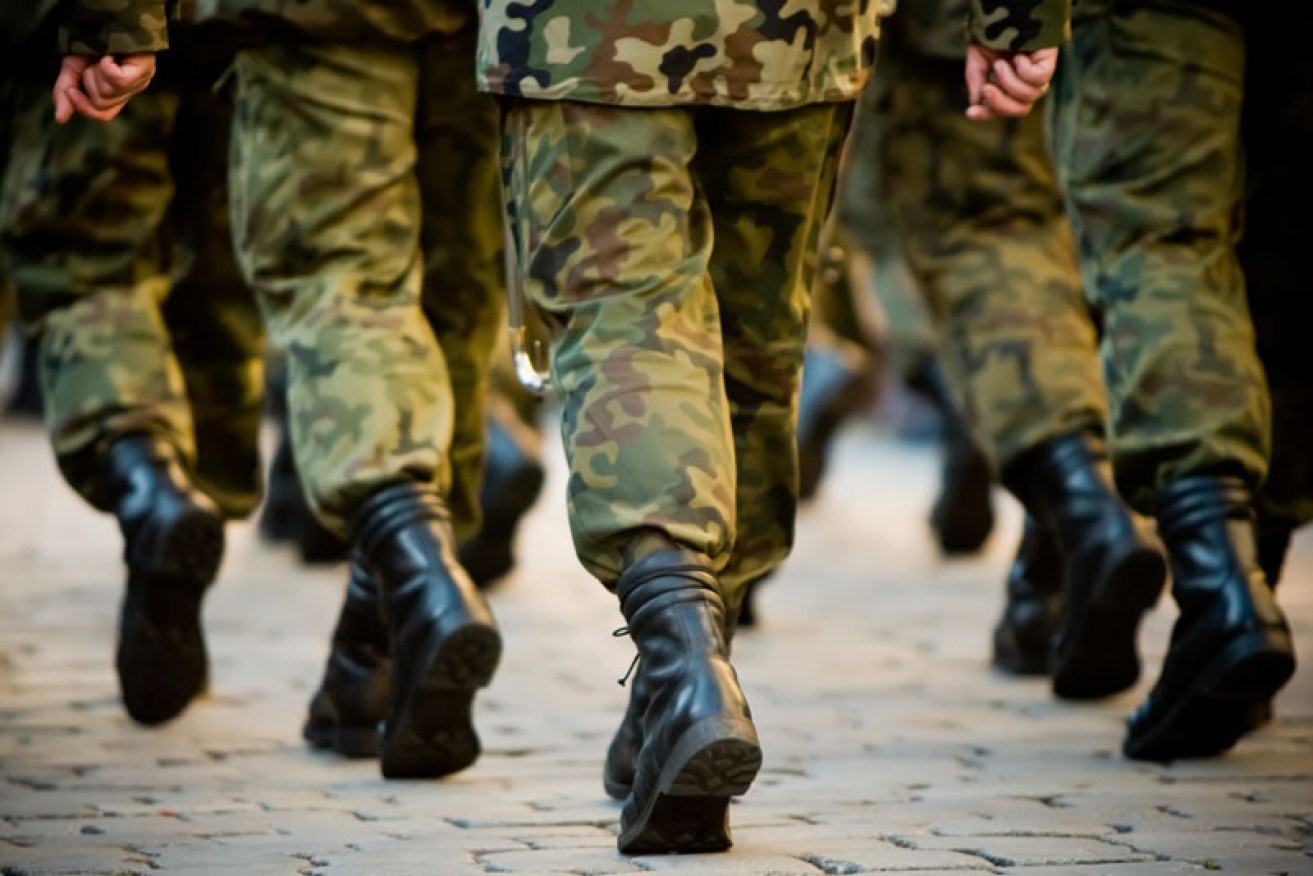Army vet designs military boot camp for delinquent kids


Shutterstock
An army veteran, once on the path to delinquency himself, says military-style discipline is the way to combat kids with behavioural issues and says suspending or expelling children from school is not the answer.
Veterans for Youth, founded by army vet Daimien Patterson, is a camp which uses military techniques – drills, field training, and room and dress inspections – to address rebellious, disrespectful and anti-social behaviour in teenagers.
Mr Patterson said the Veterans for Youth program filled a gap left behind by schools.
• Finding happiness comes down to three key things
• The reasons why you should go to bed early
• Fear for kids on anti-psychotic medication
“Schools are limited in what they can do with challenging children and they need other support options,” Mr Patterson said.

A new program aims to use military-style discipline to help teenagers improve their behaviour. Photo: Getty
“The system doesn’t look after these kids and suspending or expelling them isn’t the answer … teachers are fighting with their hands tied behind their back.
“The military environment can be very effective in teaching discipline and a productive learning environment for these kids.”
But University of Melbourne graduate school lecturer in learning intervention, Lisa McKay-Brown, told The New Daily that Australian schools were already proactive in implementing a holistic approach in identifying and addressing the reason behind students’ complex behaviours, and a ‘one-size-fits-all’ method would not work.
“We know there can be outdoor adventure therapy programs that support young people who have complex behavioural programs, and are at risk from disengaging from school, and they can bring these communication and leadership skills back into the school setting,” Dr McKay-Brown said.
“The questions I would ask, however, is why is this young person displaying complex behaviours, and is instilling discipline into them going to teach them what they have missed out on or what they haven’t learnt with regards to interacting with others [or lack of learning or social skills].
“Is this program individualised for each student? Has each student been assessed? Is there a real clear understanding of what the behaviour might be? Is each student individualised to ensure skills are being built for these young people?”

Lisa McKay-Brown said a ‘one-size-fits-all’ approach wouldn’t work. Photo: Shutterstock
Dr McKay-Brown said research revealed schools which used a ‘school-wide positive behaviour support’ approach showed an improved school climate, young people were more academically engaged, there was less tardiness and unexpected absences, and a decrease in challenging behaviours.
“This is a process that is not a curriculum or a program, but a culture shift in schools over time, and the results over 20 years are good,” she said.
“We know suspension and expulsion doesn’t change behaviours, the research is clear on that zero tolerance policies doesn’t change behaviour.”
The University of Queensland education professor Robyn Gillies told The New Daily that all schools were required to have a behaviour management policy that should spell out what was expected of student behaviour – and should negotiate the terms with them.
Professor Gillies said once inappropriate behaviour was observed, such as deliberate disobedience or threats to themselves or others, schools would then initiate some of the sanctions.
“But what I’ve been saying to schools for a number of years is, you can have your sanctions, but it’s really very important to be pro-active with young people and to talk to them about ways of being able to manage their behaviours,” she said.
“That really involves schools spending a lot of time with them and teachers in the classroom to build relationships with young people.”
From destructive delinquent to role model
As a 13-year-old on a destructive path, Mr Patterson said he met Vietnam veteran and serving soldier John Weir, who turned his life around.

Daimien Patterson says his program will save some youths from a life of delinquency.
Twenty-five years later he teamed up with him on the project to help save youths from a life of delinquency.
“When I met John Weir I was off the rails – experimenting with low-level violence, disruptive at school, stealing, vandalising and totally disengaging from society,” Mr Patterson said.
“John told me I was an intelligent person with enormous potential and if I didn’t stop what I was doing my life would go down the tube. He said ‘I’ll back you 100 per cent if you do what I say’.
“For a 13-year-old boy who rarely saw his father – only telephone parenting when I got too out of hand – it was life-changing.”
Mr Patterson quickly went from training in an elite military college, serving in East Timor and Iraq, rising to the rank of Major in the army, and becoming the owner of a successful business.
In December, the first Veterans for Youth camp will bring more than 65 wayward teens from across the country to the training facility just outside Brisbane.
“My life story shows how intervention in the teenage years, and a strong role model, can make a very significant difference for a child,” Mr Patterson said.









